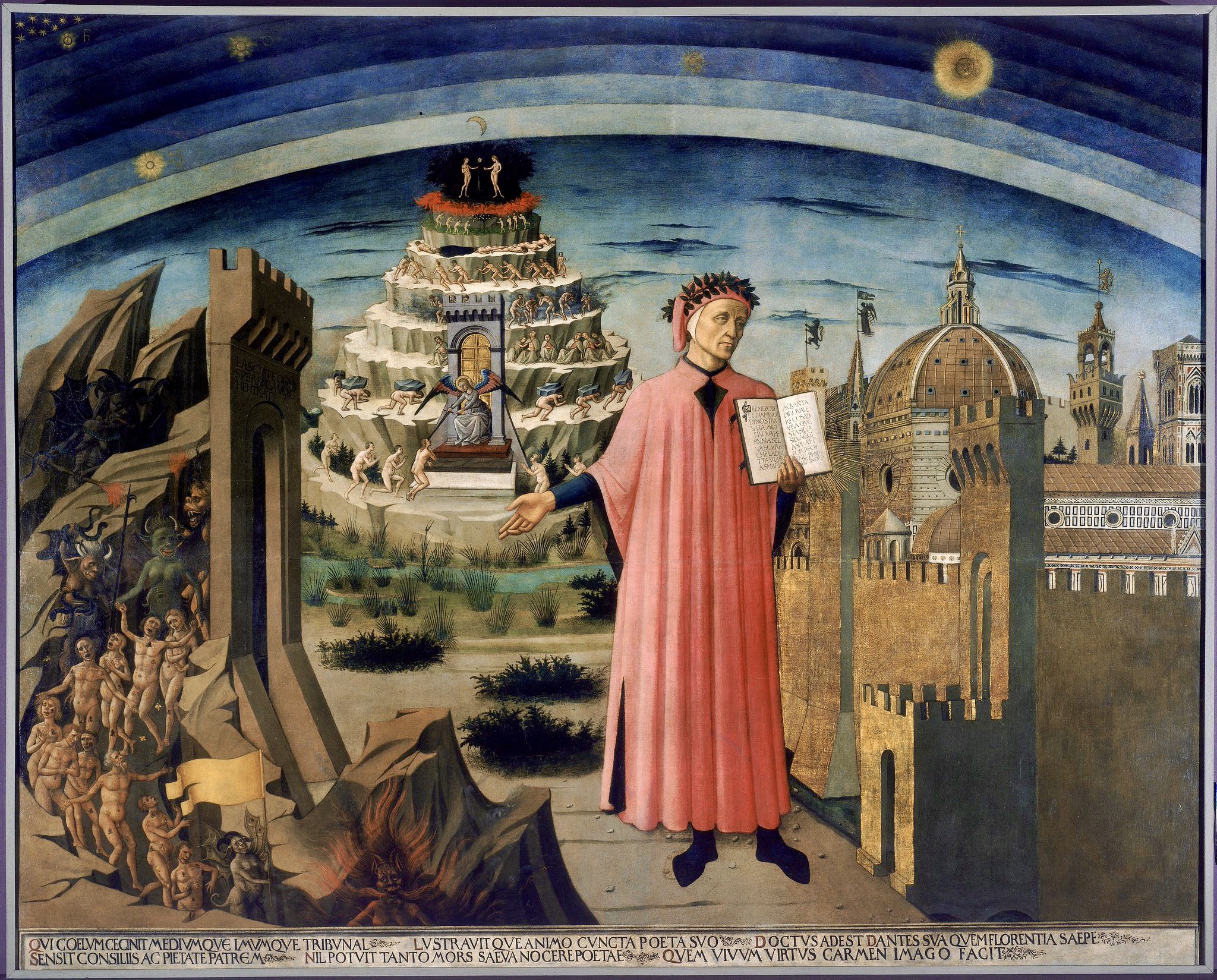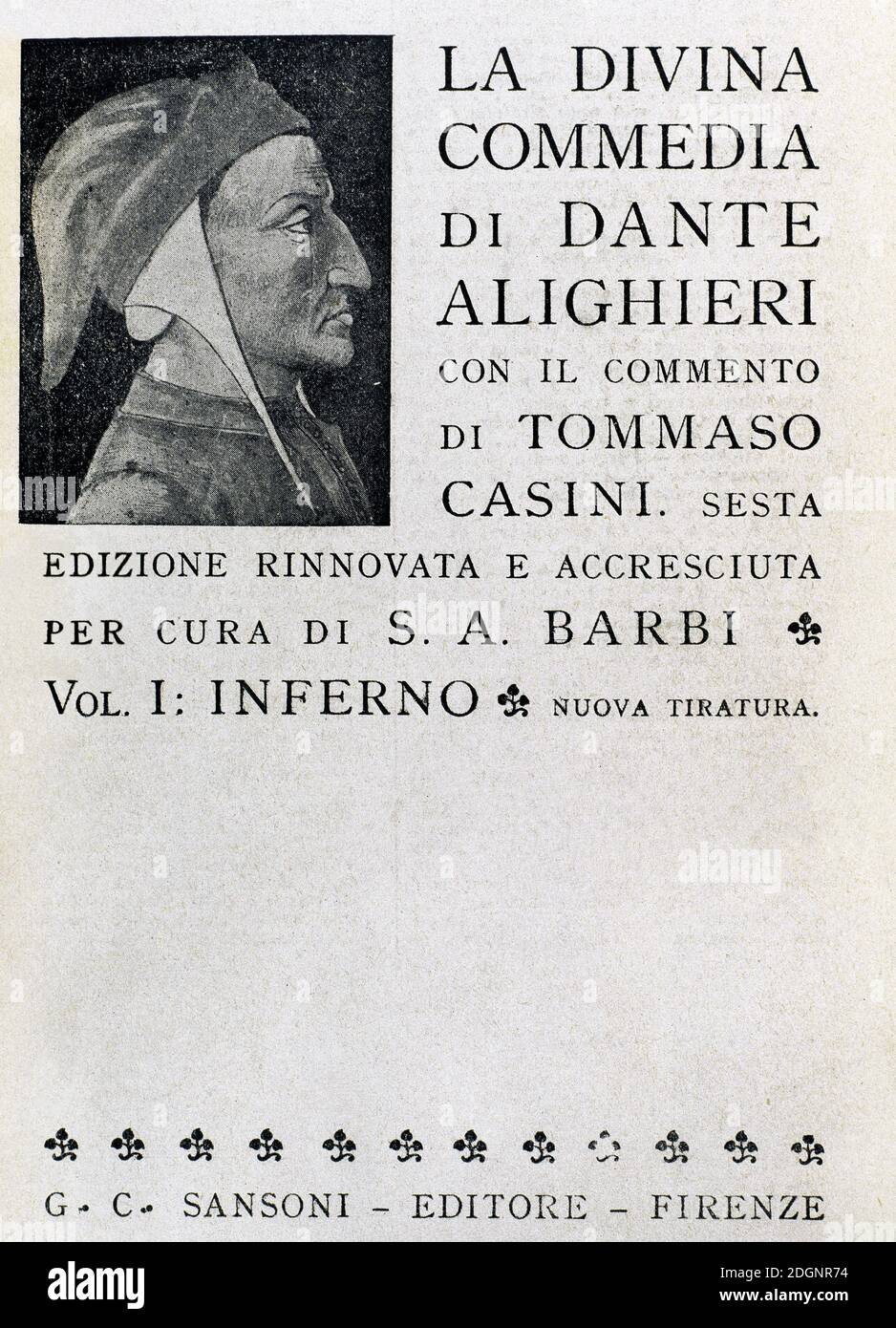
Have you ever paused to consider the profound impact that a single poem can have on the trajectory of literature as a whole? This is precisely what the renowned Italian poet, **Dante Alighieri**, accomplished with his monumental masterpiece, **The Divine Comedy**. In this article, we will embark on an enlightening journey that explores the life of Dante, delving into the historical and personal contexts that shaped his writing. We will also examine the intricate themes and vivid imagery found within The Divine Comedy, as well as its far-reaching influence on literature, art, and culture throughout the centuries. Join us as we uncover how this extraordinary work not only transformed the literary landscape of its time but continues to resonate with readers and thinkers today.
Who Was Dante Alighieri?

Dante Alighieri was born in the year 1265 in the vibrant city of Florence, Italy, into a family that belonged to the lesser nobility. His formative years were marked by a series of personal tragedies, including the heartbreaking loss of both his mother and father at a young age. However, the most significant influence on his life and work came from his deep and abiding love for a young woman named Beatrice. She became the central muse for much of his poetry, inspiring him to explore themes of love, beauty, and the divine. It’s truly remarkable to think about dedicating one’s entire life’s work to someone who has inspired such profound feelings and creativity.
### The Early Years
From an early age, Dante exhibited a remarkable talent for writing, showcasing a gift that would later define his legacy. By the time he reached the age of nine, he had already encountered Beatrice, and those fleeting moments would linger in his memory, shaping his thoughts and artistic expression for years to come. His early poetry is infused with youthful passion, yet it also foreshadows the deeper, more complex themes he would later delve into in his monumental works.
### Political Turmoil in Florence
During Dante’s lifetime, Florence was rife with political conflict and upheaval. The city was a battleground for various factions, and Dante found himself drawn into the tumultuous world of politics. His political involvement ultimately culminated in his exile in 1302, a harrowing experience that forced him to leave behind his beloved city due to his beliefs and affiliations. Imagine the emotional turmoil of being uprooted from your home and community! This experience of exile had a profound impact on his writing, particularly in his magnum opus, *The Divine Comedy*, where themes of loss, redemption, and the quest for truth are intricately woven into the narrative.
What is The Divine Comedy?

**The Divine Comedy** is far more than just a literary poem; it represents an extraordinary journey through the afterlife, meticulously divided into three distinct parts: **Inferno** (Hell), **Purgatorio** (Purgatory), and **Paradiso** (Paradise). Each of these sections is imbued with rich symbolism and profound allegory, making the text a complex yet immensely rewarding experience for readers.
### The Structure of The Divine Comedy
| Section | Theme | Key Characters |
|————|———————-|——————————-|
| Inferno | Sin and Punishment | Dante, Virgil, Beatrice |
| Purgatorio | Redemption | Dante, Virgil, Various Souls |
| Paradiso | Divine Love | Dante, Beatrice, Various Saints |
#### Inferno: A Descent into Darkness
In **Inferno**, Dante embarks on a harrowing descent through the nine circles of Hell, where each circle represents different sins and the corresponding punishments that fit those transgressions. This vivid portrayal of justice is both terrifying and fascinating, as Dante illustrates the horrors of the damned. Can you imagine the chilling scenes he describes? The imagery is striking, leaving readers to grapple with the moral implications of sin and its consequences.
#### Purgatorio: The Path to Redemption
Following his descent, Dante enters **Purgatorio**, a realm where souls undergo purification to cleanse themselves of their sins before they can ascend to Paradise. This section is filled with themes of hope and the possibility of redemption, portraying Purgatory as a spiritual boot camp. The souls here are engaged in hard work, striving to overcome their past misdeeds, but the effort is ultimately worthwhile as it leads them closer to divine grace.
#### Paradiso: The Ultimate Reward
Finally, in **Paradiso**, Dante is welcomed into the bliss of Heaven, where he reunites with Beatrice, who serves as his guide through the celestial spheres. This part of the journey is characterized by themes of divine love and the ultimate union with God. It represents the culmination of Dante’s spiritual quest, offering a sense of fulfillment and joy that resonates deeply with readers. It’s the happy ending we all yearn for, encapsulating the idea that love and faith can lead to eternal happiness.
The Themes of The Divine Comedy

What makes **The Divine Comedy** such a remarkable and enduring work of literature? One of the key elements that sets it apart is its exploration of profound themes that resonate across time and cultures. Let’s delve into a few of the most significant themes that Dante Alighieri masterfully weaves throughout his epic poem.
### Sin and Redemption
At the heart of **The Divine Comedy** lies a deep exploration of sin and redemption. Dante’s allegorical journey through the realms of the afterlife serves as a reflection of the human experience, illustrating the universal struggles we all face in our quest for forgiveness and the desire to lead a more virtuous life. This theme of seeking redemption is timeless, reminding readers that the pursuit of moral integrity and spiritual growth is a journey that transcends the ages.
### Love and Longing
Another powerful theme in Dante’s work is his profound love for Beatrice, which serves as a central driving force throughout the narrative. This love is not merely romantic; it symbolizes the transformative power of love itself, suggesting that it can elevate our souls and guide us toward higher truths, ultimately leading us to a connection with the divine. The way Dante expresses this longing for Beatrice illustrates how love can inspire deep philosophical reflections and spiritual insights, making it a theme that continues to resonate with readers today.
### Political Commentary
Dante was not only a poet but also a keen observer of the political landscape of his time. His personal experiences, particularly his exile from Florence, fueled his critiques of the corruption and injustices prevalent in the political systems of his era. Through his vivid depictions of various historical and contemporary figures, Dante effectively becomes a medieval political commentator, using the medium of poetry to voice his concerns and advocate for justice. This aspect of **The Divine Comedy** adds a layer of complexity to the work, as it intertwines personal narrative with broader societal issues, making it a rich tapestry of human experience and thought.
In summary, the themes of sin and redemption, love and longing, and political commentary are what make **The Divine Comedy** a timeless masterpiece. These elements not only reflect Dante’s personal journey but also speak to the universal human condition, ensuring that the poem remains relevant and impactful for generations to come.
The Impact of Dante’s Work

Dante’s influence on literature is immeasurable. By writing in the Italian vernacular instead of Latin, he opened the door for future writers. His work laid the groundwork for the Italian language and inspired countless authors across Europe.
Influence on Literature
Many writers, including Chaucer and Milton, drew inspiration from Dante. His innovative use of language and structure set a new standard for poetry. Can you think of any modern authors who might owe a debt to Dante?
Theological and Philosophical Contributions
Dante’s exploration of theology and philosophy in his works also had a lasting impact. His ideas about morality and the human condition continue to be studied and debated today. It’s like he created a philosophical treasure chest that scholars still dig into!

In conclusion, Dante Alighieri is more than just a poet; he’s a cultural icon whose work transcends time and space. The Divine Comedy is a testament to the power of literature to explore the human experience. So, the next time you pick up a book, remember the legacy of Dante and the journey he took us on. What will your journey look like?

